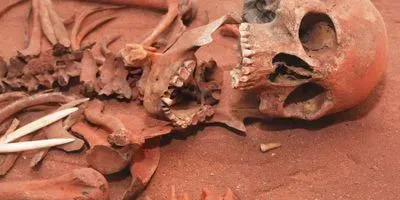BOSTON, MA — While transgender and gender-diverse individuals have historically been disproportionately susceptible to violence and homicides, the recent rise in visibility of ongoing trans-focused violence has highlighted how the medical-legal community, in general and forensic anthropology, in particular, have largely neglected trans and gender-diverse people.
This is exemplified by a new study that found nearly 30 percent of forensic anthropologists surveyed had participated in a case involving a transgender individual, yet the vast majority (75 percent) were unfamiliar with gender-affirming surgeries.
"Because medical interventions to treat the distress associated with gender dysphoria have the potential to indirectly or directly impact skeletal structures, it is important for forensic anthropologists to be familiar with these alterations," explained corresponding author Sean Tallman, PhD, RPA, assistant professor of anatomy and neurobiology at Boston University School of Medicine (BUSM).
According to the researchers, the existence of transgender and gender-diverse individuals challenges the traditional sex estimation procedures that have been highly ingrained in forensic anthropological teaching, research and practice, as these individuals may not, anatomically speaking, fall squarely into preexisting sex categories.
"It is critical that forensic anthropologists use the appropriate sex in forensic anthropological casework to ensure that decedents' humanity and self-identity are upheld. However, this requires that forensic anthropologists recognize potential signs of gender-affirming surgeries, though most practitioners are unfamiliar with surgical manifestations, and the vast majority of transgender individuals do not undergo surgical procedures."
The researchers believe moving forward, it is crucial that the field gains a comprehensive understanding of transgender bodies and how to recognize and document the changes, in addition to understanding how gender affirmation procedures impact the biological profile and subsequent identifications. "Therefore, we advocate for a bio-cultural and queer theoretical perspective in forensic sex estimation and in sexual dimorphism research, which allows for the field to challenge heteronormative assumptions, question typological two-sex categorization and combat the presumptions that gender and sex are stable entities that convey universal meaning," added Tallman.
- This press release was originally published on the BUSM website. It has been edited for style











